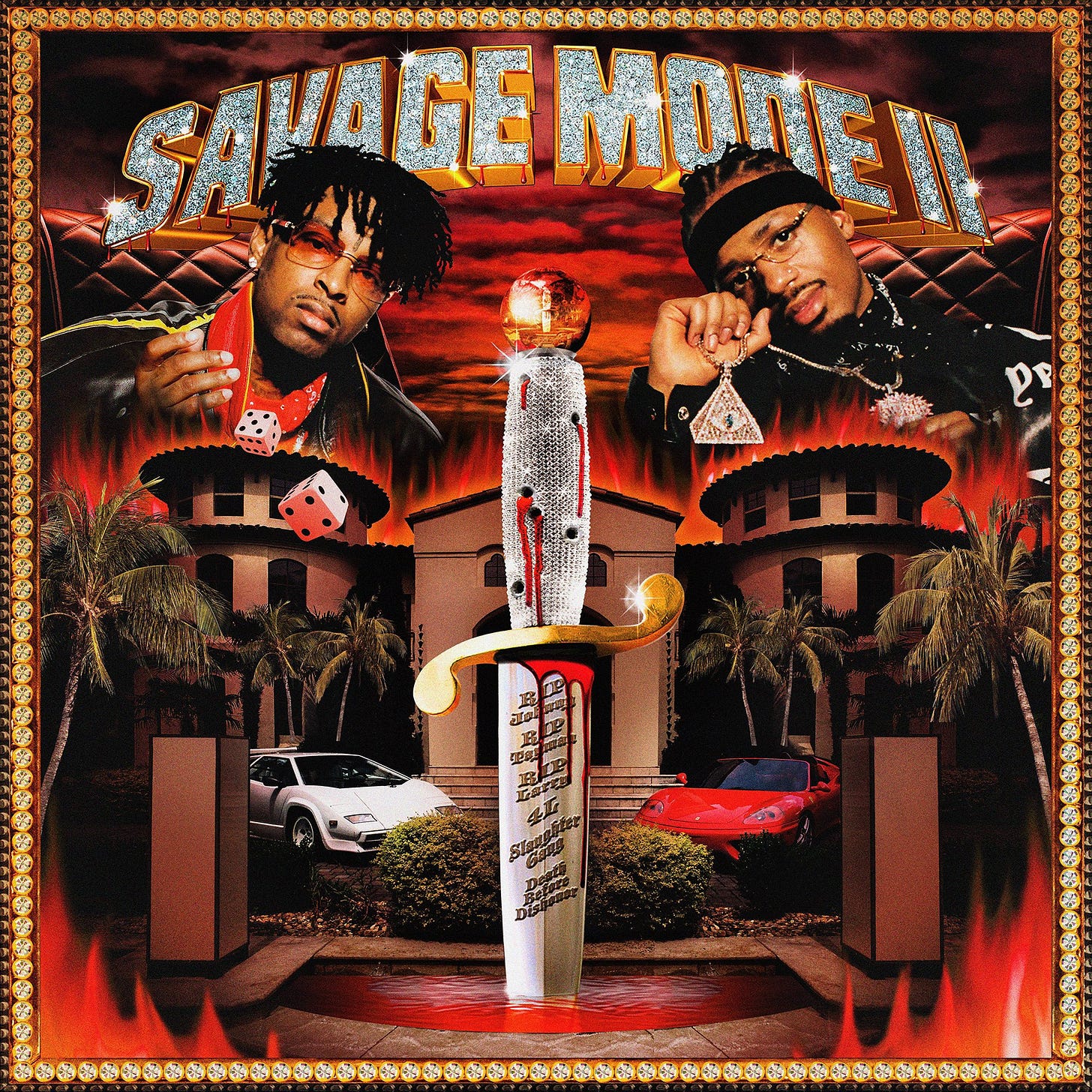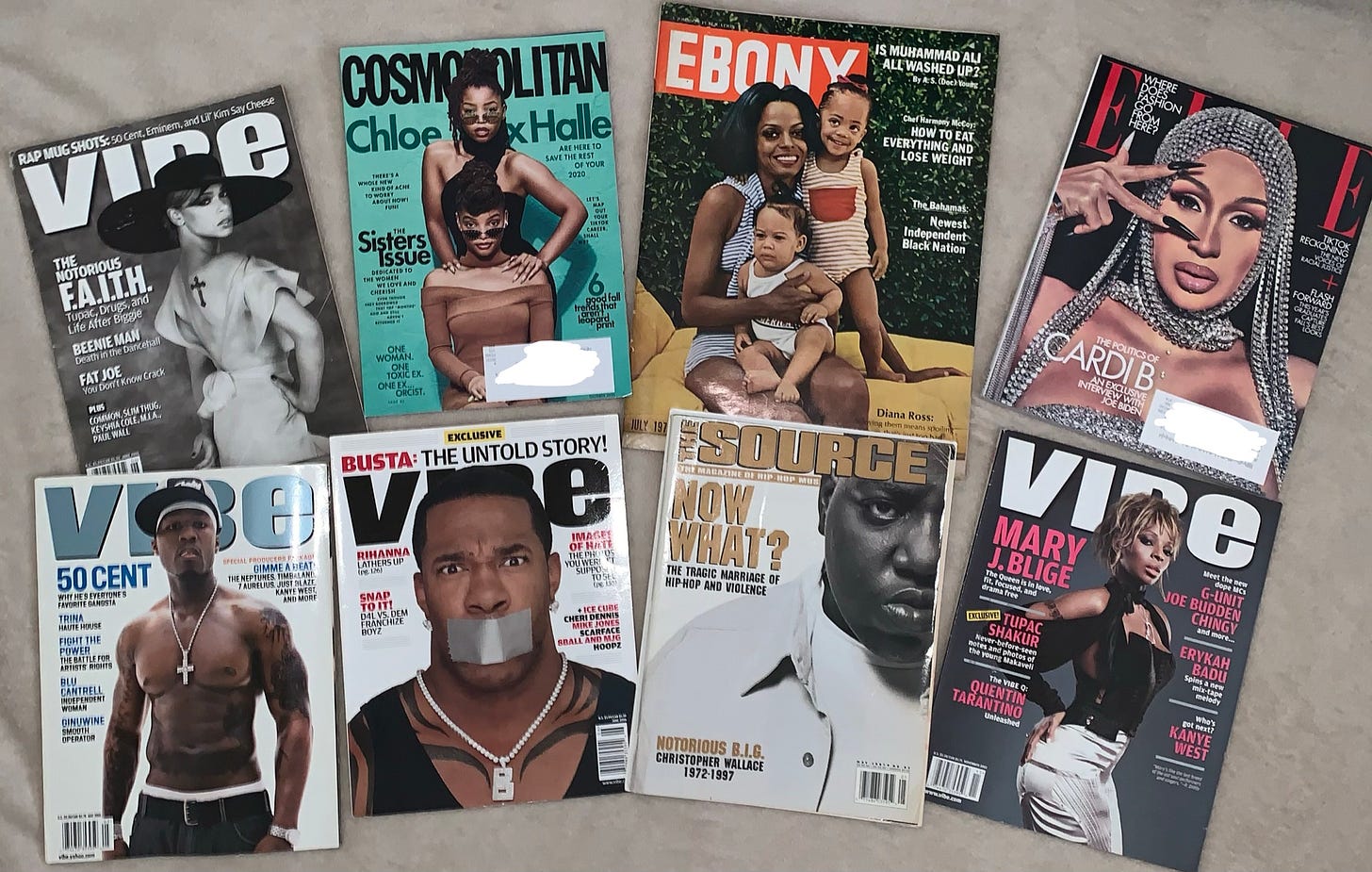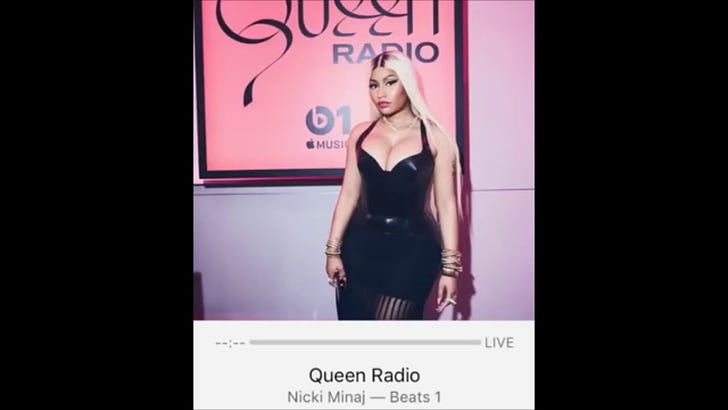The Girls Are Fighting: A Breakdown of Nicki Minaj and Tracy Chapman's Legal Battle
Issue # 007 (the A/B-Side): to (creative) FREEDOM!!! 💣 *Nicki voice*
A-Side
I read the 29 page Chapman/Minaj copyright infringement ruling so that you don’t have to. Here’s a summative breakdown of the *latest* copyright dispute to hit the music industry.
Tracy Chapman (Plaintiff,) v. Onika Tanya Maraj et al., (Defendant.)
Timeline (of Undisputed facts and events)
2017: While working on her album Queen, Nicki began creating a remake of “Sorry,” a song she believed was created by artist Shelly Thunder.
May 23 - August 2, 2018: Once Nicki (and her reps) discovered Thunder’s “Sorry” was a cover to Tracy Chapman’s “Baby Can I Hold You,” they sought Chapman’s clearance. They submitted multiple formal requests hoping to receive a license to release the new work, including reaching out on Twitter, but Chapman denied the requests.
August 3, 2018: Nicki sent a DM to DJ Flex.
“Hey. I got a record I want u to world premier. The week album drops. U will be the only one with it. I’ll have Jean hit u to explain. Keep it on the low. Wait til u see who’s on it. Not going on album either. No one will get it.”
August 10, 2018: Nicki and Flex exchange more DMs, confirming that he’d play the new work the following day. Flex sends his phone number.
Nicki’s recording engineer asks Chris Athens Masters, Inc. to master the song. Chris mastered the song, completing both clean and explicit versions.
9:12 pm: The intern emailed the links, which only allow for one download each, to the recording engineer.
August 10, 2018: Nicki released Queen (without “Sorry”).
August 11, 2018: DJ Flex promoted Queen on his social accounts.
“Shhhhhhh!!!! TONIGHT 7 PM!!! NICKY GAVE ME SOMETHING!!! @nickiminaj ft @nad !!! (NOT ON HER ALBUM!) GONNA STOP THE CITY TONIGHT!!!!!!!!!!!!!”
Nicki commented, telling Flex not to play anything not released with the album.
Later that night: Flex played the unreleased song, with the file name “01 Sorry - 72518 - master.mp3”.
Chapman and Nicki dispute a few facts:
when Flex received the work
who texted Flex the work (Nicki maintains that she did not/Flex claims his blogger sent it)
if the work Flex played was the mastered version
whether the mastered version could be sent by text
when the mixed version was created.
Chapman’s Partial Summary Judgement (PSJ)
She alleges that Nicki is liable for infringement in 2 ways:
for creating “Sorry” that includes lyrics/melodies from “Baby Can I Hold You”
for distributing the song to DJ Flex
*She also wanted the court to declare that Nicki’s infringement was “willful” (intentional and deliberate).
Nicki moved for a PSJ only on the issue of her alleged infringement, arguing that the creation of “Sorry” is an example of “fair use.”
The Copyright Act maintains that the use of a copyrighted work “for purposes such as criticism, comment, news reporting, teaching, scholarship, or research, is not an infringement of copyright.” In other words, these purposes constitute “fair use” of a copyrighted work.
Determining what constitutes fair use depends on the context. Courts consider a few factors in their rulings:
1. the purpose and character of the use, including whether such use is of a commercial nature or is for nonprofit educational purposes
2. the nature of the copyrighted work
3. the amount and substantiality of the portion used in relation to the copyrighted work as a whole
4. the effect of the use upon the potential market for the value of the copyrighted work
Nicki claims that she created “Sorry” to
1. experiment with Chapman’s artistic vision
2. create a form that can be/would be submitted to Chapman (the rights holder) for approval *
Chapman disagrees, claiming the purpose of creating the alleged infringed work was
1. commercial
2. non-transformative
*In the music industry, experimenting with works before seeking permission/licenses from the rights holders is commonplace. When seeking approval, artists typically send the experimented work to the rights holders.
Chapman has participated in this practice in the past, yet argues against it in this case. Before approving requests for licenses, she has requested the proposed works “to see how [her work] will be used” by other artists (Maraj SUF No. 9).
Forcing artists to request and receive a license before they can even experiment with a song would undoubtedly halt the music industry, especially a genre like hip-hop that encourages and thrives on sampling, ultimately driving creativity into a standstill.
“A ruling uprooting these common practices would limit creativity and stifle innovation within the music industry. This is contrary to Copyright Law’s primary goal of promoting the arts for the public good” (pg 26).
Conclusion:
“The Court GRANTS Maraj’s Motion for Partial Summary Judgment and DENIES Chapman’s Motion for Partial Summary Judgement.”
TLDR/Translation: Nicki won. 👩🏾⚖️
To (creative) FREEDOM!!!! 💣💥💣
The full Minaj/Chapman ruling can be read here.
B-Side
What’s the 411? (Early Fall Anniversary Edition)
It’s Bandcamp Friday! On every first Friday of the month, artists receive 100% of the profits from any sales made. Support your favorite artist directly by buying physical or digital copies of their music here.
Pen & Pixel came out of retirement to design the Savage Mode II cover. Aaron and Shawn Brauch, co-founders of the graphic design company, are responsible for some of the most iconic rap album covers from the early 90s to the early 2000s.

44 years ago: Stevie Wonder released Songs in the Key of Life (1976).
29 years ago: A Tribe Called Quest released their sophomore album, The Low End Theory (1991).
27 years ago: In 1993, Souls of Mischief released their debut album, 93 ‘til Infinity.
23 years ago: “Got ‘til It’s Gone,” Janet Jackson’s lead single from her 6th studio album The Velvet Rope, was released in 1997.
8 years ago: Miguel released Kaleidoscope Dream in 2012 (they really used to play “Adorn” on the radio like every 10 minutes!)
7 years ago: Drake drops Nothing Was The Same in 2013.
5 years ago: Drake and Future dropped the mixtape What a Time to Be Alive in 2015 (this was released during my first semester of college and….what a time to be alive.)
4 years ago: Solange released her 3rd studio album, A Seat at the Table on her record label Saint Records (2016).
That New-New
Just a sample of new music dropped recently:
Pass the Mic
🎤 “Pen & Pixel designed around 20,000 album covers from 1993 to 2003 before shutting down following the 9/11 attacks, which halted out-of-town clients’ travel, and the rise of peer-to-peer file sharing internet service Napster, which kickstarted the decline in physical album sales. But over 10 years later, Pen & Pixel’s legacy is living on through fashion. Brands and retailers are releasing pieces directly inspired by the Brauch brothers’ artwork.” — Mike Destafano, Pen & Pixel Iconic Rap Album Covers Still Inspire Designers Today
🎤 “ Every Monday night on UPN [Eve] tapped into another lane on the path of Hollywood success at the height of her music career, bringing her Hip-Hop starpower to the small screen. Her show further cemented what most should have already known: that women in rap didn’t have to compromise themselves, and could exist across professions triumphantly.” — Njera Perkins, It’s Time to Discuss the Impact of UPN’s ‘Eve’
From the Archives
I’ve been finding and collecting magazines over the past few months to build my physical archive. New additions include the May 1997 The Source magazine (the month I was born/the month Biggie was killed), four early 2000s VIBE magazine issues, the 1973 Diana Ross issue of Ebony, Cosmo’s Chloe x Halle cover issue (recent), and the Cardi B cover issue of Elle (recent). For special editions of A-Side/B-Side, I’ll be scanning the magazines (in order to build and share a digital archive), analyzing their articles/images, and putting older works in conversation with newer ones.

The Credits
See yall next week. ❤️🤍💜



